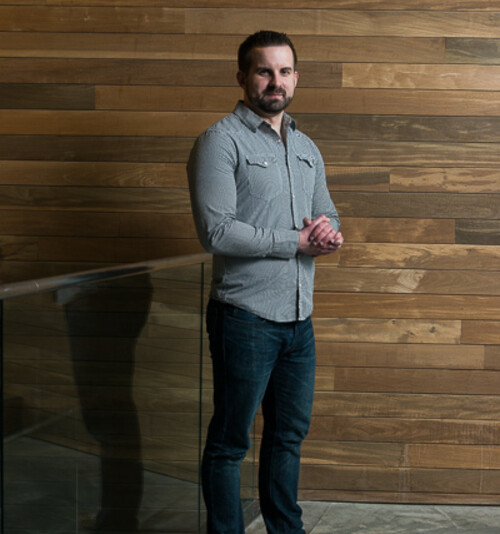Thomas Norman

When Thomas Norman first joined Harvard’s department of systems biology, he had never taken a biology course or worked in a lab. His background was in pure math and engineering, and especially the field known as control theory, the study of systems regulated by feedback, like thermostats and electricity grids. “But cells,” Thomas says, “face many of the same broad tasks that engineers face. They have to control certain components with high accuracy, necessitating feedback, and they need to monitor the effects of their environment. But unlike human technology, with cells we don’t necessarily know how their logic operates. We have to explain it after the fact.”
We don’t, for instance, know how cells make what Thomas calls “lifestyle decisions,” on whether to live independently or in a cluster of neighbors, when to settle down and when to strike out on their own. They don’t, of course, have brains, so “decisions” on questions like these are made using logic encoded in complex networks of gene interaction. Compounding the problem, though, is the fact that these interactions occur at such small scales that they inevitably include a significant degree of randomness from environmental noise, which makes the cells’ behavior often look random, too.
Applying methods from control theory, Thomas traps populations of cells in tiny traps made of microfluids, and studies them over the course of their life cycle. “Since their lives are fleeting,” Thomas says, “we can watch the bacteria as they go through hundreds of generations of growth - imagine analyzing the effect of your distant ancestors on your behavior now.” The data from these observations allows for careful statistical characterization of the behavior of the bacteria, allowing Thomas and his collaborators to begin to define the rules by which they operate. Thomas adds that the experimental methods he is developing are not specific to bacteria, so his pioneering methods might eventually applied to other systems. From engineering to biology and, maybe, back again.

